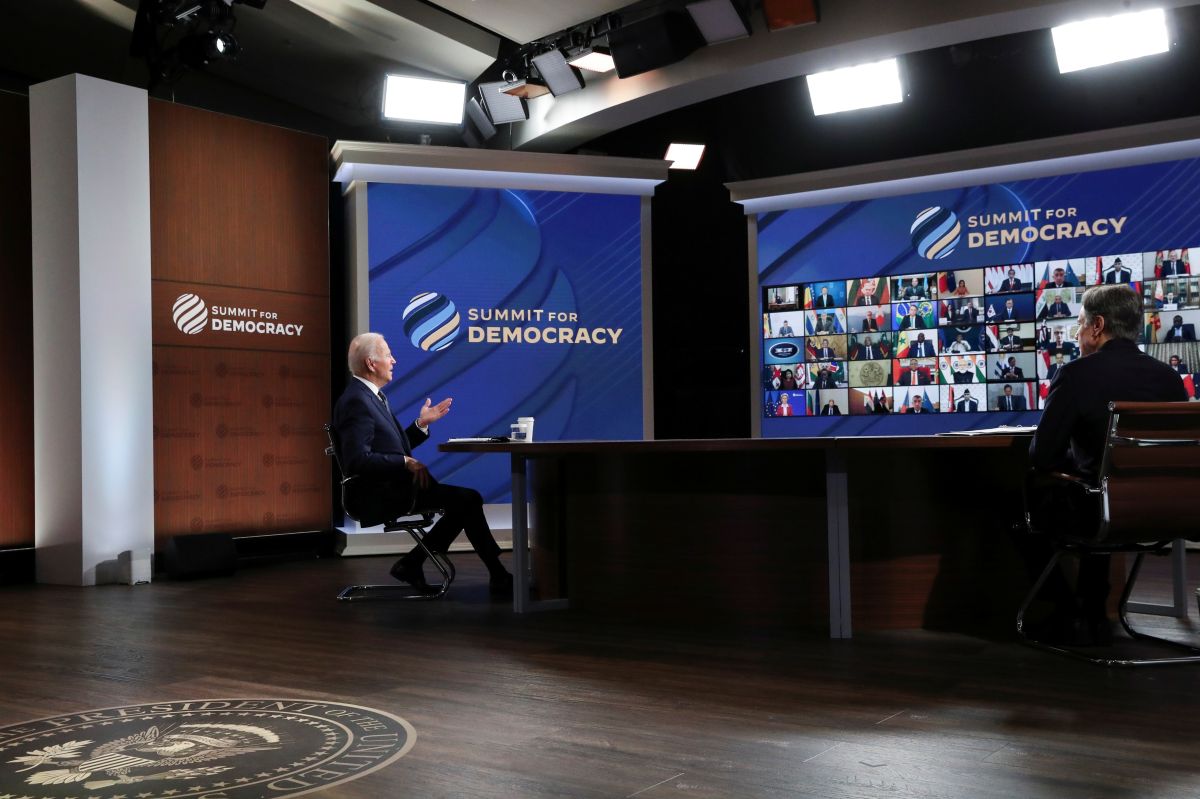Summit for Democracy
The virtual Summit for Democracy, organised by the U.S., was held on 9-10 December. It was attended by representatives of 110 countries and the EU, mainly at the rank of head of state and government. The summit was a fulfilment of President Joe Biden’s election promise of the global promotion of democracy and opposition to authoritarian states, especially China and Russia. However, the lack of clear goals of this initiative and joint commitments by a wide range of states undermine the usefulness of the summit for U.S. foreign policy.
 Photo: LEAH MILLIS/Reuters/Forum
Photo: LEAH MILLIS/Reuters/Forum
What was the purpose of the democracy summit?
One of the main assumptions of President Biden’s foreign policy is to confirm the U.S. position as the global leader of the community of democratic states and promoter of the rule of law, human rights, and democratisation. The aim of the summit was to bring together leaders of states and representatives of social groups and the private sector to discuss challenges in three areas: strengthening democracy and countering authoritarianism, fighting corruption, and promoting human rights on a global scale. It was also intended to demonstrate the international community’s support and commitment to democratic values. The summit was also of great importance for domestic politics in the U.S. as it was intended to show that American democracy is strong despite former President Donald Trump’s questioning the results of the 2020 election and the Capitol attack, which have undermined the democratic electoral process in the U.S.
What happened at the summit?
The countries invited to participate in the summit were asked to undertake specific commitments related to the state of their own democracy and democratisation, fight against corruption, and respect of human rights. The U.S. announced a stand-alone presidential initiative that will allocate more than $400 million to support free media, fight corruption, promote democracy, and strengthen electoral processes around the world (through the Department of State and USAID programs). Australia, Denmark, Norway, and the U.S. announced a joint initiative aimed at developing common standards for the control of hardware and software exports that enable states to violate human rights. Poland committed to supporting the Belarusian opposition and civil society.
What is the future of the Summit for Democracy?
The summit did not conclude with the adoption of a joint communiqué or statement, probably because no such document was planned from the start. Another meeting is due in a year’s time to take stock of the progress countries have made in terms of their commitments. The Biden administration signalled that the Summit for Democracy will not be a cyclical initiative and that the second summit would be the end of its activities. From the U.S. perspective, the initiative may permanently revise foreign policy by extending the scope of activities in the promotion of democracy. However, in the absence of clearly defined global goals and broadly shared commitments, the Summit for Democracy will not become a “club of democracies” in which the U.S. pulls states away from cooperation with China, Russia, and other authoritarian regimes.
What is the significance of the summit in U.S. policy towards allies and rivals?
China and Russia, the strongest authoritarian states in the world and the main rivals of the U.S., were not invited to the summit. Both countries through their ambassadors to the U.S. criticised the summit, saying it incites ideological confrontation. However, the summit did not focus on how to combat these countries’ harmful actions, including non-compliance with international law, interference in the electoral systems of other countries, or gross and continuous violations of fundamental human rights. This was most likely related to Biden’s attempt to calm the tensions in U.S.-China and U.S.-Russia relations. Turkey and Hungary also were not invited among the U.S. allies, but also the state of democracy in these and other countries was not widely discussed. For this reason, the Summit for Democracy is unlikely to play a significant role in American foreign policy as it creates no mechanism of pressure on China or Russia, or on U.S. allies who have been identified as struggling with democratic backsliding.


